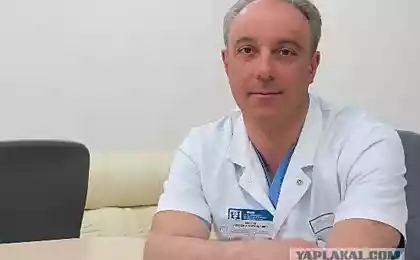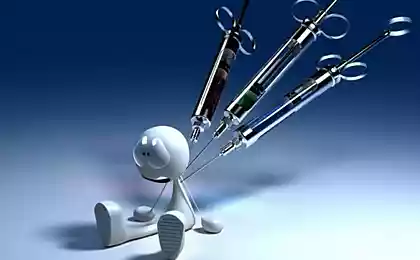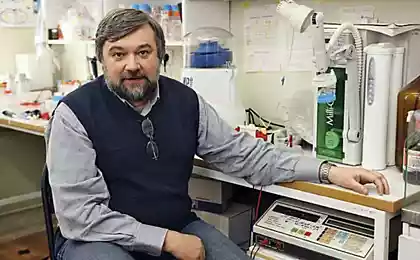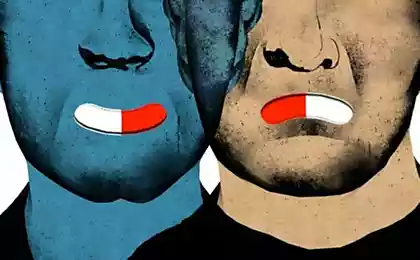465
5 combinations of drugs that can kill you
Medical edition Medical Daily, published an important list: drugs, a combination which together constitutes a danger to health and even life. Unfortunately, this information is not widespread, and because each person taking any medications should know that! < Website is a translation of the list prepared by the website of Dr. Komarovsky. Keep this article, it may be useful to you.
Cough medicine and antigistaminnye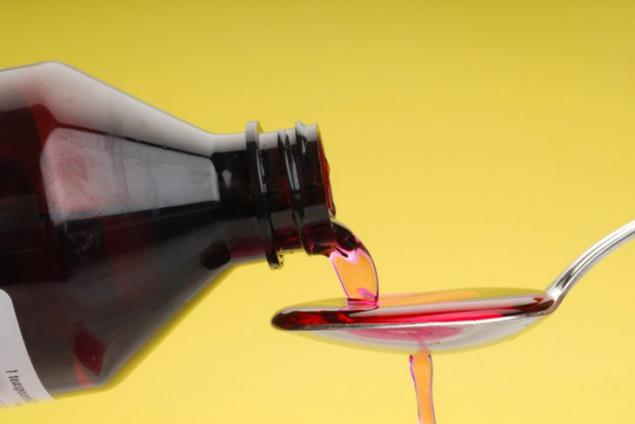
Many OTC cough remedies and antihistamines (allergy medications) contain in their composition similar substances, therefore, are both taking the drug together, you run the risk of excessive dose that will greatly enhance sedation.
Uncontrolled drowsiness may pose a risk to those who are not aware of the sedative effect of this combination will drive significant instrumentation, machine or car. Even taking cough medicine and antihistamines before bedtime, when resting in front of the whole night, in the morning you can feel unusually weak.
Antidepressants and obezbolivayuschie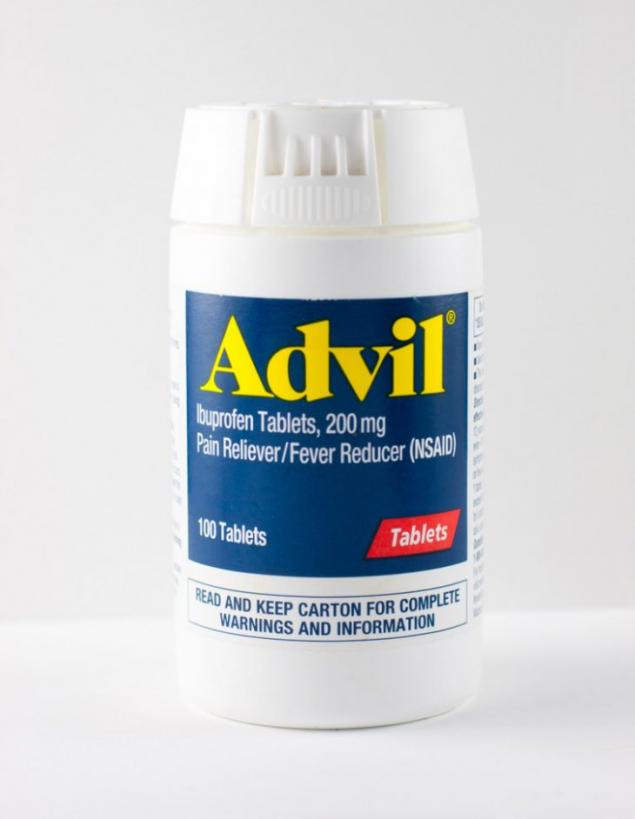
Anyone who has ever prescribed antidepressants or painkillers are likely to know that they can not be taken together. And your doctor will tell you about it because I do not want you to be well, but because he cares about your health.
And SSRIs (selective serotonin reuptake inhibitor, belonging to one of the class of antidepressants) and non-steroidal anti-inflammatory drugs (NSAIDs, which are often used as analgesics and antipyretics), increase the risk of bleeding in the stomach and esophagus to 600 (!)% , that is, six times. A recent study by Dutch experts found that taking a combination of these two drugs more often provoke gastrointestinal bleeding compared to taking each of these drugs alone.
And SSRIs and NSAIDs are the triptans and affect the serotonin levels. The result of their interaction - is not only increasing the danger of internal bleeding, but unpleasant side effects: anxiety, increased body temperature, increased heart rate and breathing
Anticoagulants and aspirin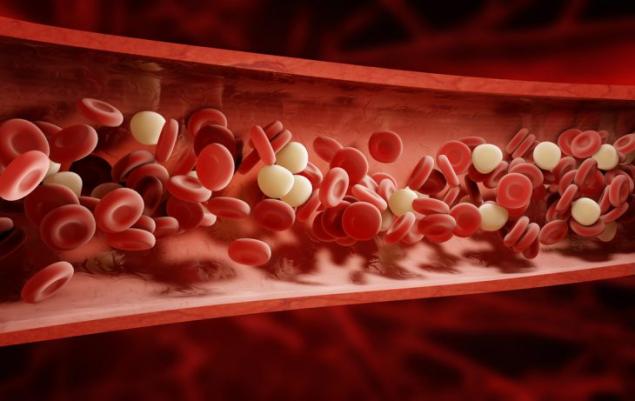
. In many countries, anticoagulants are considered serious enough medicines and sold only by prescription. They prescribed to reduce the formation of blood clots in the arteries.
Aspirin is one of the OTC and is often used to reduce pain. However, many do not know that this drug also thins the blood and is known as antiaggregant. When taken together with aspirin, anticoagulant, their cumulative effect can significantly increase your chances of developing internal and external bleeding.
Painkillers and sedatives preparaty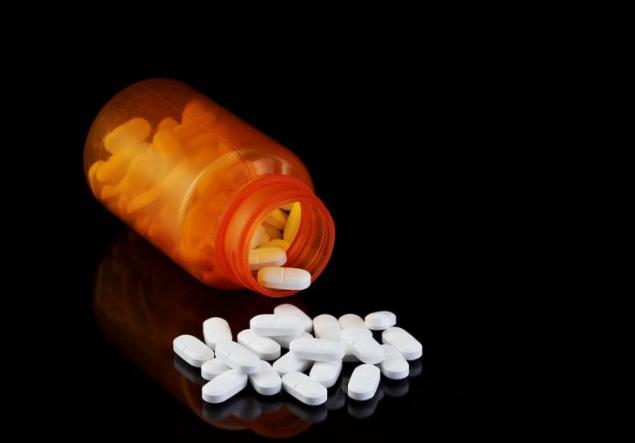
And antitrevozhnye agents and opioid analgesics, such as morphine and codeine act as sedatives. If you take these drugs at the same time, their toxic effects increases. This overdose of anti-depressants can significantly reduce both respiratory rate and heart rate, sometimes to deadly levels.
People who take these drugs in combination are likely to receive prescriptions for them from different doctors and buying them in different pharmacies. This method is also called "shopping for doctors" - the patient is consciously visited several doctors to give them prescriptions for drugs, and each of the doctors do not know about the other appointments
. Unfortunately, due to the total impact of these drugs on the respiratory system the outcome of their total admission for a man can be fatal.
Acetaminophen and opioidy
Despite their popularity, these drugs can be very dangerous if taken in quantities exceeding the recommended dose. Often people try to increase the effect of acetaminophen with codeine taking his medications. When these two drugs are taken together, they can very quickly cause serious liver damage.
A 2005 study conducted in Seattle, found that 38% of people developed a acute liver failure due to the fact that they have accidentally taken an overdose of the drug, or more than one type of pill. And those who took medications containing acetaminophen and opioids, acute liver failure developed in 63% of cases.
< Website wishes you and your family's health!
< br> via lib.komarovskiy.net/author/medical-daily.html
Cough medicine and antigistaminnye

Many OTC cough remedies and antihistamines (allergy medications) contain in their composition similar substances, therefore, are both taking the drug together, you run the risk of excessive dose that will greatly enhance sedation.
Uncontrolled drowsiness may pose a risk to those who are not aware of the sedative effect of this combination will drive significant instrumentation, machine or car. Even taking cough medicine and antihistamines before bedtime, when resting in front of the whole night, in the morning you can feel unusually weak.
Antidepressants and obezbolivayuschie

Anyone who has ever prescribed antidepressants or painkillers are likely to know that they can not be taken together. And your doctor will tell you about it because I do not want you to be well, but because he cares about your health.
And SSRIs (selective serotonin reuptake inhibitor, belonging to one of the class of antidepressants) and non-steroidal anti-inflammatory drugs (NSAIDs, which are often used as analgesics and antipyretics), increase the risk of bleeding in the stomach and esophagus to 600 (!)% , that is, six times. A recent study by Dutch experts found that taking a combination of these two drugs more often provoke gastrointestinal bleeding compared to taking each of these drugs alone.
And SSRIs and NSAIDs are the triptans and affect the serotonin levels. The result of their interaction - is not only increasing the danger of internal bleeding, but unpleasant side effects: anxiety, increased body temperature, increased heart rate and breathing
Anticoagulants and aspirin

. In many countries, anticoagulants are considered serious enough medicines and sold only by prescription. They prescribed to reduce the formation of blood clots in the arteries.
Aspirin is one of the OTC and is often used to reduce pain. However, many do not know that this drug also thins the blood and is known as antiaggregant. When taken together with aspirin, anticoagulant, their cumulative effect can significantly increase your chances of developing internal and external bleeding.
Painkillers and sedatives preparaty

And antitrevozhnye agents and opioid analgesics, such as morphine and codeine act as sedatives. If you take these drugs at the same time, their toxic effects increases. This overdose of anti-depressants can significantly reduce both respiratory rate and heart rate, sometimes to deadly levels.
People who take these drugs in combination are likely to receive prescriptions for them from different doctors and buying them in different pharmacies. This method is also called "shopping for doctors" - the patient is consciously visited several doctors to give them prescriptions for drugs, and each of the doctors do not know about the other appointments
. Unfortunately, due to the total impact of these drugs on the respiratory system the outcome of their total admission for a man can be fatal.
Acetaminophen and opioidy

Despite their popularity, these drugs can be very dangerous if taken in quantities exceeding the recommended dose. Often people try to increase the effect of acetaminophen with codeine taking his medications. When these two drugs are taken together, they can very quickly cause serious liver damage.
A 2005 study conducted in Seattle, found that 38% of people developed a acute liver failure due to the fact that they have accidentally taken an overdose of the drug, or more than one type of pill. And those who took medications containing acetaminophen and opioids, acute liver failure developed in 63% of cases.
< Website wishes you and your family's health!
< br> via lib.komarovskiy.net/author/medical-daily.html
A wonderful parable about how to go to heaven
grammar school graduates declined from expensive dresses and costumes in order to help those in need!


